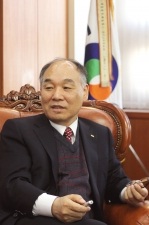The Korean Education Ministry said Tuesday it would launch its first state-run platform for Korean massive open online courses, dubbed K-MOOC, by the second half of this year. It is proposed to develop 20 pilot lectures within this year and gradually increase the number to 500 by 2018, according to the plan unveiled in Tuesday’s weekly Cabinet meeting. The ministry will also use existing lectures provided by Korea Open Course Ware, an e-learning service that provides video lectures and reference materials for higher education that was launched in 2007. As of December, 9,628 classes are provided by 183 colleges and universities across the country.
The government will be in charge of creating the platform, but individual colleges will maintain the respective courses they provide. People who complete the courses can receive certification. A majority of Korea’s top-tier colleges have shown interest in the 2.2 billion won ($2 million) project, according to a ministry official. The government has yet to finalize a plan to actually grant degrees or college credits for K-MOOC lectures.
For full article, see Korea Herald.


